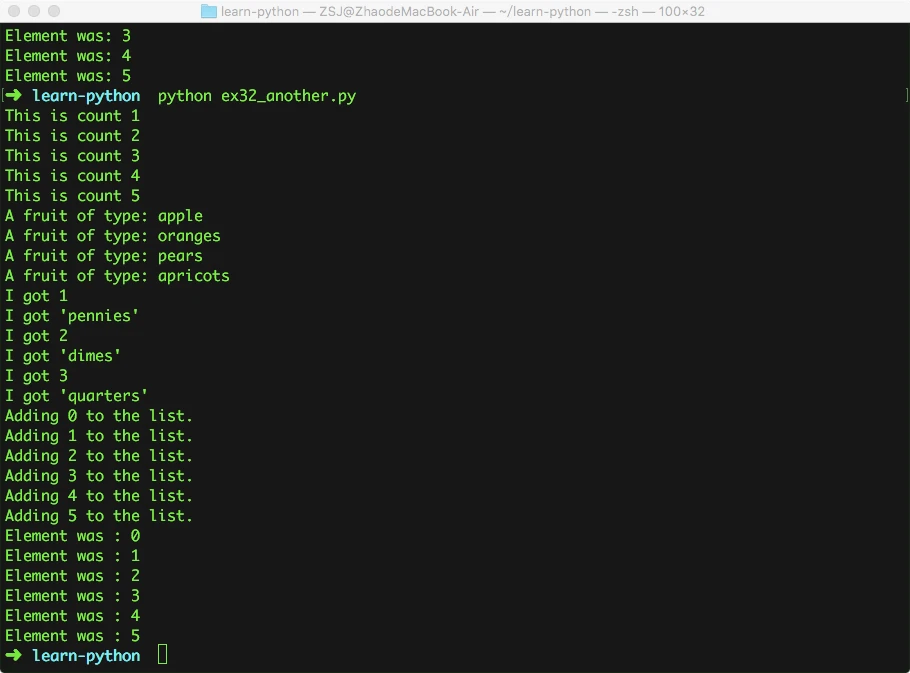1
2
3
4
5
6
7
8
9
10
11
12
13
14
15
16
17
18
19
20
21
22
23
| the_count = [1,2,3,4,5]
fruits = ['apple', 'oranges', 'pears', 'apricots']
change = [1, 'pennies',2,'dimes',3,'quarters']
# this first kind of for-loop goes through a list
for number in the_count:
print "This is count %d" % number
#same as above
for fruit in fruits:
print "A fruit of type: %s" % fruit
# Also we can go through mixed lists too
# notice we have to use %r since we don't know what's in it
for i in change:
print "I got %r" % i
# We can also build list, first strt with an empty one
elements = [ ]
# then use the range function to do 0 to 5 counts
for i in range(0,6):
print "Adding %d to the list." % i
# append is a function that lists understand
elements.append(i)
# now we can print them out too
for i in elements:
print "Element was : %d" % i
|
